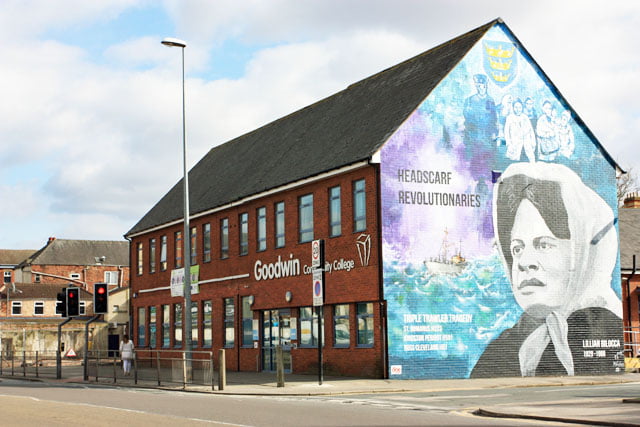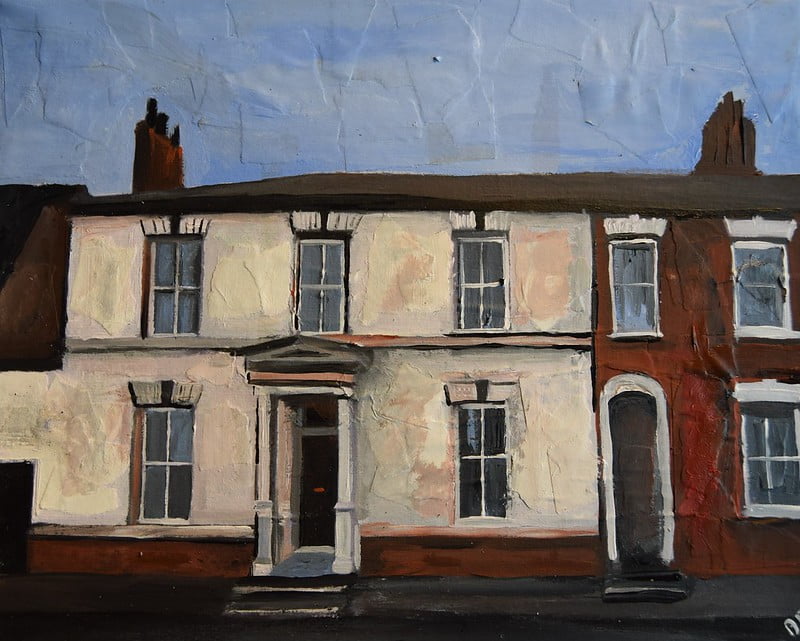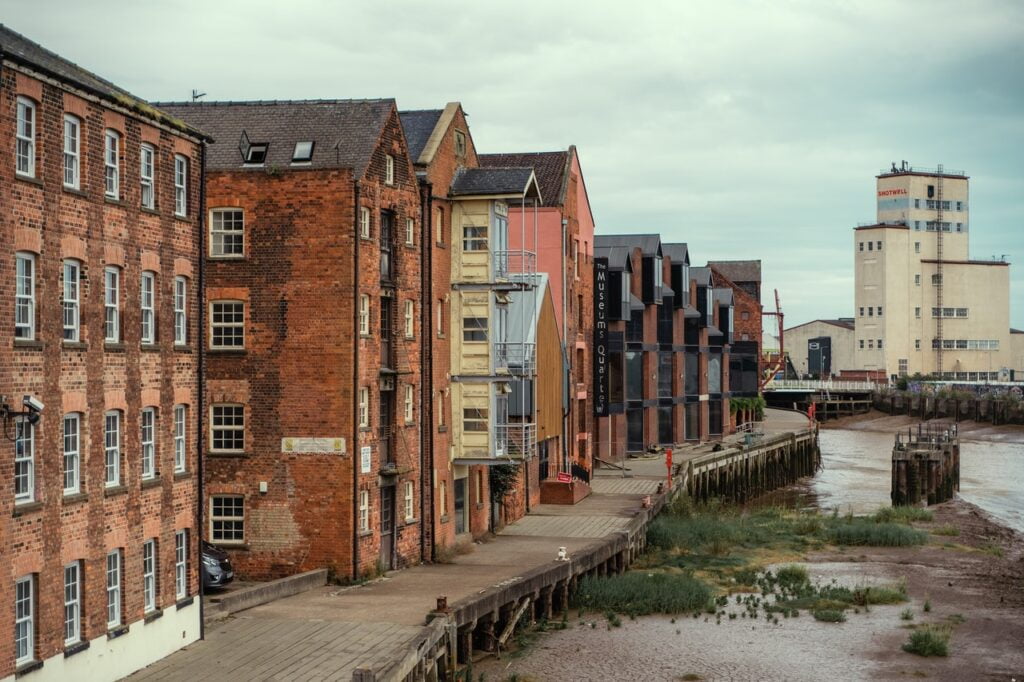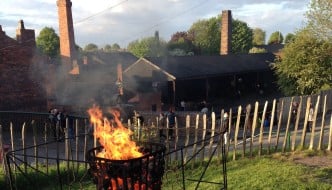
“Lil Bilocca Mural” by Peter Church
On a calm January evening in 1968 in the North Sea, the Hull trawler “St Romanus” telephoned its status back to the shore. She was never heard from again. A calm evening fast turned into a stormy night; the fishing vessel lost all 20 crewmates to the briny sea.
This was the first of three tragedies to strike the Hull fishing industry in the coming weeks. The Kingston Peridot and the Ross Cleveland would soon follow in the disastrous footsteps of the previous tragedy.
58 crew members died with just one survivor living to tell the tale.
Public outcry of the situation died down and life went on. The city of Kingston-Upon-Hull marched on. It relied on the fishing industry at sea and on-shore to live. The tragedy lived on in the family’s heads as their loved ones sailed off once more.
One ordinary fisheries worker decided to take things into her own hands. Losing a son herself in the tragedy she saw a need for change.
Lillian “Big Lil” Bilocca.
Like most in the Hull fishing community she hailed from the tight-knit community of Hessle Road. Surrounded by heartache and loss, she decided enough was enough. Organising meetings with trawlermen, their families and local politicians and unions – she started a movement.
With fellow activists Christine Jenson, Mary Denness and Yvonne Blenkinsop, they became known as “The Headscarf Revolutionaries”, the name coming from the fashionable headscarfs the women wore. The Hessle Road Women’s Committee was in full action.

‘Big Lil’s House,’ Coltman Street, Hull, by Andrew Reid Wildman” by Spicygreenginger
Action
The main cause of the revolutionaries was much needed safety improvements onboard trawlers, the main demand being that every ship leaving Hull docks should always have a dedicated radio operator and enough crew to deal with an emergency.
Inevitably the fishing corporations opposed the committee at all costs. The three were even receiving death letters according to Bilocca’s daughter, but this didn’t deter Bilocca. She would not stop. She didn’t want to stop. The three women who had lost so much already had now been blacklisted from the fishing industry.
Refusing to accept defeat they took campaigning into their own hands. Direct action took place on the dockside.
Bilocca refused to let ships pass through St Andrew’s Dock without adequate safety measures. She personally made sure each trawler had enough men onboard to deal with a disaster and reportedly threw herself onto one vessel who refused her demands.
Publicity for the cause rocketed. The women’s committee met with several local politicians and councillors to effect change. Realising this was a nationwide legal issue she took it to Westminster.
Gathering 10,000 signatures in what they called a “fisherman’s charter” the group now had a mandate. The group threatened to picket Prime Minister Harold Wilson’s house and the government promptly agreed a meeting with Wilson personally.
Government ministers granted every one of their requests.

Why is this story important?
The revolutionaries of the Hessle Road Women’s Committee showed the power of grassroots campaigns. The women had no political experience, all being regular people from a regular city. They affected change at the highest level of government in a matter of weeks.
The heroic story of these women in the face of tragedy highlights the fact that change comes from the populace.
In the face of ecological disaster there are lessons we should all take from them. People across the world are losing their lives and homes to the impending disaster. Huge wildfires affect diverse eco-systems and flooding threatens a huge portion of the world’s population.
It isn’t just natural disasters, air pollution in large cities is causing major harm.
While the government claim that climate activists are terrorist groups, they simply cannot label huge swathes of the population as “extremists”. The story of Billocca proves this. Described as an extremist at first by the opposition, they eventually had to listen to her and the 10,000 people behind her.
How many people need to suffer from the ecological disaster before somebody like Lillian Bilocca stands up?
Filed under: Community
Tagged with: activists, environment, fisheries, fishing, Headscarf Heroes, Hull, industry, tragedy



Comments